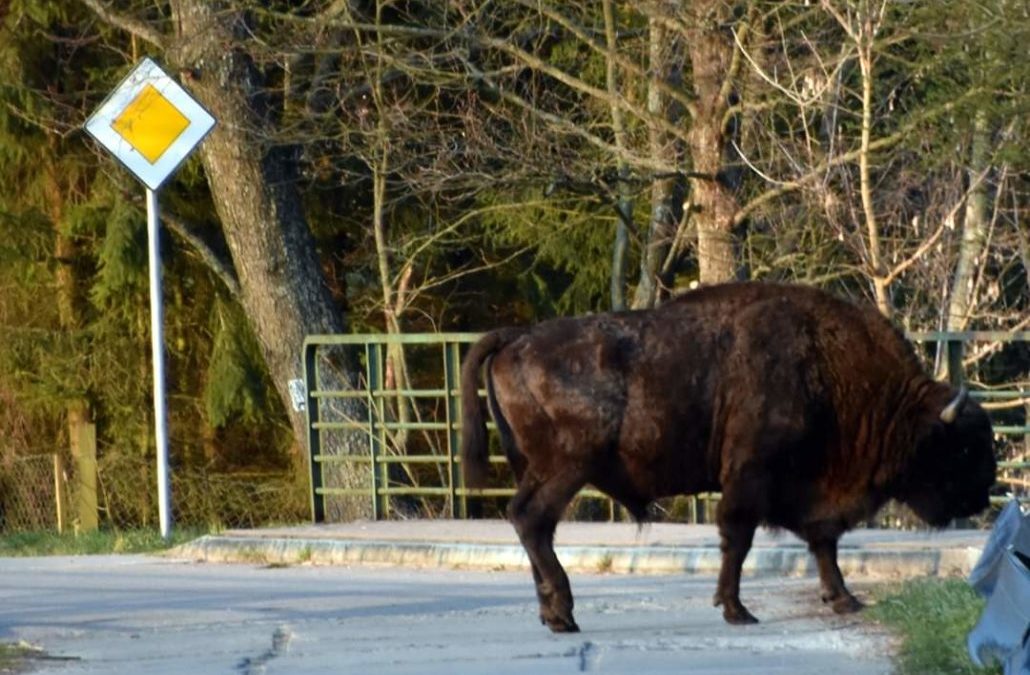The temporary ban on entering Poland’s forests, imposed as part of the governments efforts to mitigate the spread of the coronavirus, has had an unforeseen positive effect, as emboldened animals have begun to venture further onto roads and even into towns, according to the environment ministry.
“It is like a miracle of nature,” the ministry commented in a statement. “Only now, with the ban on entering the forests, have we seen how much we have lost.”
It cited examples from opposite ends of the country suggesting that the two weeks of prohibition on entering parks and forests – a controversial measure which ended today – have led to animal behaviour not seen for years.
“It’s incredible how quickly nature is revived when there are no humans,” said Adam Roczniak, a forester quoted in the statement. “It is as if the animals have lost their fear. They’re playing with their young on the roads, trails, forest car parks, entering shelters, even leaving the forest and visiting empty streets in suburban estates.”
“Bison have appeared in places in which we haven’t tended to see them in the day time,” said Michał Krzysiak, director of the Białowieża National Park in northeastern Poland. “We joke that they’ve come out onto the streets to demonstrate and demand that the ban on entering the forest be continued, as it finally allows them to move around their home.”
Krzysiak added that the bison is not generally aggressive, and usually yields to humans. “Now at last it can reign over its territory. For naturalists this is an incredible sight – a dignified king grazing next to the main entrance to the park, without stress, without the smell of fumes and without humans.”
The statement also refers a sighting of a herd of deer wandering along the empty streets of Zakopane (in fact reported earlier in the crisis, before the ban on entering forests). Szymon Ziobrowski, director of the Tatra National Park in southern Poland, said that naturalists had filmed a young bear which had woken from hibernation, while an exceptionally large flock of mountain goats had also been spotted.
Poniedziałek w #Zakopane. Gdy mieszkańcy i turyści pozostają w domach, spacerują łanie! [Wideo: M. Jakubowska] pic.twitter.com/DBr2mqlciB
— Onet Podróże (@OnetPodroze) April 13, 2020
According to Ziobrowski, such signals are coming from all around Poland. “The animals have had a breather and are taking advantage of the absence of humans,” he said.
In an article published by Notes from Poland last week, Ziobrowski wrote “we are observing more tracks intersecting trails, which means that animals are moving more freely. Predators also have more space in the absence of humans, making it much easier for them to hunt.”
It is not just large mammals that have benefited. According to Anna Malinowska, a State Forests spokesperson, common toads have also been able to mate in peace, safe from the threat of being run over by cars. “And this means the increase in their populations that is essential for the ecosystem,” she explained.
Speaking to TVN, journalist Adam Wajrak warned of the potential harmful effects that could come as restrictions are lifted. “I’m afraid of what will come afterwards, that there’ll be a carnival after the fasting. Don’t dismantle the rigours concerning environmental protection under the pretence of fighting the potential crisis. That will be a very big error.”
Parks, forests and other green spaces have been officially off limits since the beginning of April, when the government introduced tightened restrictions including a ban on entry. Critics have questioned not only the sense of the rules, but also their legality and the exemption handed to hunters.
Before the introduction of the ban, but with reduced numbers of humans in their ordinary habitat, changing animal behaviours had begun to be reported. In March, a group of wild boars appeared in a popular city park in Kraków. The city’s boar population – between 500 and 1,000 – usually sticks to more secluded, wooded areas.
Kraków. Rano w parku Jordana zamiast ludzi, pojawiły się dziki. Strażnicy miejscy zabezpieczyli wejścia do parku, a wezwani na miejsce łowczy profesjonalnie zajęli się zwierzętami. Zostały uśpione i przewiezione w bezpieczne dla nich miejsce @krakow_pl pic.twitter.com/7CItBQy4xE
— Marek Anioł (@marek_aniol) March 24, 2020
Forests and parks are again open as of today as the government begins to loosen certain restrictions. It also clarified that the mandatory wearing of a mask or other face covering does not apply to forests.
Main image credit: Lasy Państowe

Ben Koschalka is a translator, lecturer, and senior editor at Notes from Poland. Originally from Britain, he has lived in Kraków since 2005.




















